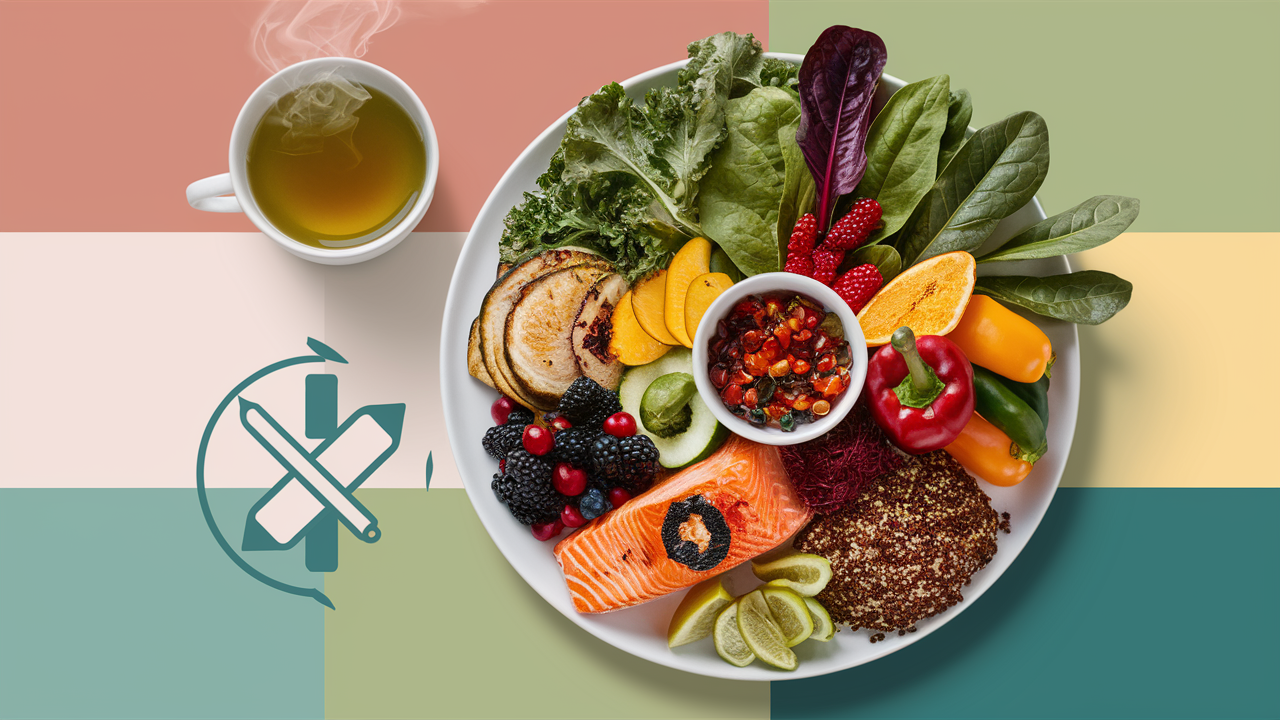
Living with chronic, low-grade inflammation can significantly impact your health. Fortunately, what you eat plays a crucial role in managing inflammation. This blog post explores the concept of anti-inflammatory foods and equips you with strategies to create a dietary approach that promotes healing and fights inflammation.
Understanding Inflammation: Beyond the Temporary Ache
Inflammation is a natural response of the immune system to injury or infection. It’s a vital process that helps heal wounds and fight off illness. There are two main types:
- Acute Inflammation: A short-term response characterized by redness, swelling, pain, and heat. This is a necessary part of healing.
- Chronic Inflammation: A long-term, low-grade inflammatory state that doesn’t resolve and can contribute to various health problems.
The Food-Inflammation Connection: What You Eat Matters
Certain foods can trigger or worsen inflammation, while others have potent anti-inflammatory properties. Here’s a breakdown:
- Pro-Inflammatory Foods: These can promote inflammation. Examples include:
- Refined carbohydrates and sugary drinks
- Unhealthy fats (saturated and trans fats)
- Processed meats
- Refined vegetable oils (corn, soybean)
- Pro-Inflammatory Foods: These can promote inflammation. Examples include:
- Anti-Inflammatory Foods: These have properties that can help reduce Inflammatory. Examples include:
- Colorful fruits and vegetables
- Fatty fish (salmon, mackerel, tuna)
- Whole grains
- Olive oil
- Nuts and seeds
- Spices (turmeric, ginger, garlic)
- Anti-Inflammatory Foods: These have properties that can help reduce Inflammatory. Examples include:
Building an Anti-Inflammatory Plate
Now that you understand the impact of food on inflammation, let’s explore how to create an anti-inflammatory diet:
- Prioritize Whole, Unprocessed Foods: Fruits, vegetables, whole grains, lean protein sources, and healthy fats are key.
- Embrace a Rainbow: Include fruits and vegetables of various colors for a wider range of anti-inflammatory nutrients.
- Choose Lean Protein Sources: Opt for grilled chicken, fish, beans, lentils, or tofu. Limit red meat and processed meats.
- Healthy Fats are Your Friends: Include healthy fats from avocados, nuts, seeds, and olive oil for reduced Inflammatoryand overall health.
- Spice Up Your Life: Anti-inflammatory spices like turmeric, ginger, and garlic add flavor and an anti-inflammatory boost.
- Limit Pro-Inflammatory Foods: Minimize refined carbohydrates, sugary drinks, unhealthy fats, and processed meats.
- Read Food Labels: Pay attention to added sugars, sodium, and unhealthy fats. Choose minimally processed foods whenever possible.
Sample Anti-Inflammatory Meal Plan
Here’s a sample meal plan to illustrate an anti-inflammatory approach:
Breakfast: Greek yogurt with berries and chia seeds, whole-wheat toast with avocado and scrambled eggs
Lunch: Salmon with roasted vegetables and brown rice
Snack: Handful of almonds and a piece of fruit
Dinner: Chicken stir-fry with brown rice and mixed vegetables
Snack: Cottage cheese with sliced bell peppers
Beyond Diet: A Holistic Approach to Managing Inflammation
Dietary choices are a powerful tool, but a holistic approach is essential:
- Manage Stress: Chronic stress can contribute to Inflammatory issues. Practice stress-management techniques like yoga or meditation.
- Get Enough Sleep: Aim for 7-8 hours of quality sleep for optimal health and reduced Inflammatory issues.
- Regular Exercise: Aim for at least 150 minutes of moderate-intensity exercise or 75 minutes of vigorous-intensity exercise per week.
- Maintain a Healthy Weight: Obesity can contribute to chronic Inflammatory issues.
- Consider Supplements: Talk to your doctor about potential vitamin or mineral deficiencies. Some supplements might be recommended.
The Takeaway: Empowering Your Body’s Natural Defenses
Chronic inflammation can be a significant health concern. However, through dietary choices, stress management, sleep hygiene, and healthy lifestyle practices, you can empower your body’s natural anti-inflammatory response and experience the benefits of reduced Inflammatory issues. Remember, consistency is key!
Empower Yourself with Knowledge:
- Websites:
- Arthritis Foundation: https://www.arthritis.org/
- Harvard School of Public Health: https://www.health.harvard.edu/topics/inflammation
- Websites:
Remember:
- It’s crucial to consult with a healthcare professional before making significant dietary changes, especially if you have any underlying health conditions. They can guide you based on your individual needs and recommend any necessary supplements.
- Consistency is key. The benefits of an anti-inflammatory diet accumulate over time. Embrace this approach as a lifestyle change for optimal health and long-term well-being.
By incorporating these tips and resources, you can embark on a rewarding journey towards a healthier, inflammation-managed you. Let food be your medicine, and enjoy the vibrant world of anti-inflammatory foods that nourish your body and promote healing!
